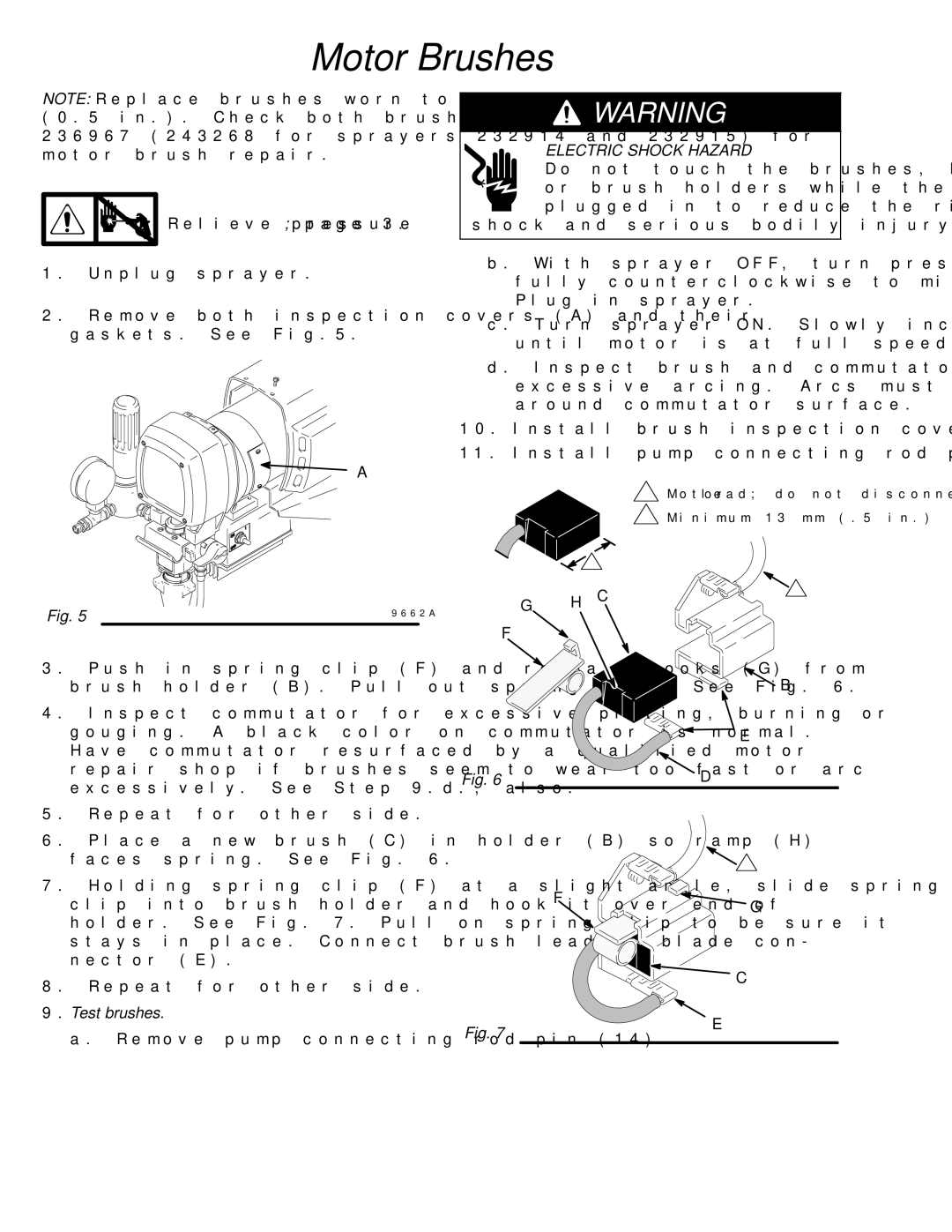
Motor Brushes
NOTE: Replace brushes worn to less than13 mm
(0.5 in.). Check both brushes. Use Brush Repair Kit 236967 (243268 for sprayers 232914 and 232915) for motor brush repair.
Relieve pressure; page 3.
1.Unplug sprayer.
2.Remove both inspection covers (A) and their gaskets. See Fig.5.
A
Fig. 5 | 9662A |
|
3.Push in spring clip (F) and release hooks (G) from brush holder (B). Pull out spring clip. See Fig. 6.
4.Inspect commutator for excessive pitting, burning or gouging. A black color on commutator is normal. Have commutator resurfaced by a qualified motor repair shop if brushes seem to wear too fast or arc excessively. See Step 9.d., also.
5.Repeat for other side.
6.Place a new brush (C) in holder (B) so ramp (H) faces spring. See Fig. 6.
7.Holding spring clip (F) at a slight angle, slide spring clip into brush holder and hook it over end of holder. See Fig. 7. Pull on spring clip to be sure it stays in place. Connect brush lead to blade con- nector (E).
8.Repeat for other side.
9.Test brushes.
a. Remove pump connecting rod pin (14).
![]() WARNING
WARNING
ELECTRIC SHOCK HAZARD
Do not touch the brushes, leads, springs or brush holders while the sprayer is plugged in to reduce the risk of electric
shock and serious bodily injury.
b.With sprayer OFF, turn pressure control knob fully counterclockwise to minimum pressure. Plug in sprayer.
c.Turn sprayer ON. Slowly increase pressure until motor is at full speed.
d.Inspect brush and commutator contact area for excessive arcing. Arcs must not trail or circle around commutator surface.
10.Install brush inspection covers and gaskets.
11.Install pump connecting rod pin (14).
1Motor lead; do not disconnect
2Minimum 13 mm (.5 in.)
| 2 |
|
| H C | 1 |
G |
| |
F |
|
|
|
| B |
|
| E |
Fig. 6 | D | 03881 |
| ||
|
| 1 |
| F | G |
|
| |
|
| C |
Fig. 7 | E | 03881 |
|
|
10 309067
